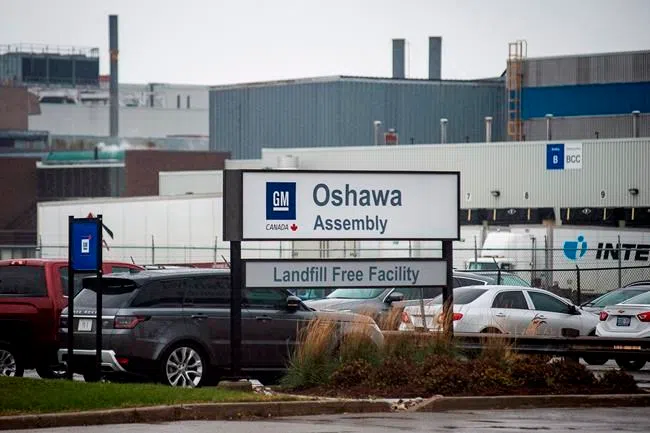
‘It’s bad:’ Oshawa, Ont., digests ‘devastating’ GM plant closure
OSHAWA, Ont. — Shell-shocked GM workers streamed into the rain and chill wind after their union sent them home on Monday amid word that their plant would be closing by the end of 2019, dealing a blow to a city and region once synonymous with the automaker.
As workers and their families digested the pending loss of more than 2,500 jobs, discussion at a nearby mall turned on the uncertain reality.
Joanna Stojkovic, clutching her seven-month-old daughter, put down the phone after her GM worker husband passed on the news.
“Our livelihood is gone. We’re all in limbo right now,” Stojkovic said. “It’s a devastating blow for all of Durham Region. GM has been around for a long time.”